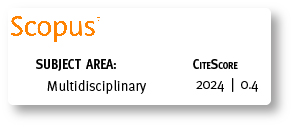Strategies that Cuenca parents use to raise their children
DOI:
https://doi.org/10.18537/mskn.07.01.04Keywords:
family socialization, functions, valuesAbstract
This study is a quantitative research conducted in the city of Cuenca, Ecuador, with the objective to determine the parental practices of the socialization function of families. A sample of 445 parents, with children in the second year of basic education, participated in the survey using the questionnaire “Analysis of the socio-educative and behavioral habits of families with children in the second year of basic education”. Processing of the collected data revealed that: a) child care and administration of home resources are activities that parents perform together, while follow-up of school activities and food preparation usually falls on mothers; b) parental participation in games is different and depends on the type of play: fathers tend to engage in games that require physical activity, while mothers are more involved in educational games; c) truth, solidarity and responsibility are considered the most valuable family attitudes, and transmitted by fathers and mothers to their children; d) kisses, hugs and a gentle or loving touch are strategies fathers and mothers use to reward their children, while the banning of things are traditionally considered punishments, on the basis of which it is concluded that fathers and mothers of Cuenca are more expressive in their socialization attitude than instrumental.
Downloads
Metrics
References
Alarcón Cebrián, A., 2012. Estilos parentales de socialización y ajuste psicosocial de los adolescentes: un análisis de las influencias contextuales en el proceso de socialización. Tesis Doctoral, Universidad de Valencia. Disponible en: http://mobiroderic.uv.es/bitstream/handle/ 10550/25041/TESIS%20DOCTORAL%20ANTONIO%20ALARCON.pdf?sequence=1&isAllowed=y, 678 pp.
Alonso-Geta, P.M.P., 2002. Valores y normas de los escolares en España desde la perspectiva de las diferencias de género (8-14) años. Revista del Ministerio de Trabajo y Asuntos Sociales, 40, 85-101.
Bronfenbrenner, U., 1979. The ecology of human development. Cambridge, MA, USA: Harvard University Press, 190 pp.
Cava, M.J., G. Musitu, 2001. La familia y la educación. Barcelona, España: Editorial Octaedro, 224 pp.
Congreso Nacional, Ecuador, 2003. Código Ecuatoriano de la Niñez y Adolescencia. Quito, Ecuador: Ley No. 100 en Registro Oficial 737. Disponible en: www.oei.es/quipu/ecuador/ Cod_ninez.pdf, 77 pp.
Del Barrio, V., I. Ramírez-Ucles, C. Romero, M.Á. Carrasco, 2014. Adaptación del Child-PARQ/Control: versiones para el padre y la madre en población infantil y adolescente española. Acción Psicológica, 11(2), 27-46.
Esteve, J.M., 2010. Educar: Un compromiso con la memoria. Barcelona, España: Editorial Octaedro, 190 pp.
Maganto, J.M., I. Bartan, J. Etxeberria, 2003. La participación en el trabajo familiar: Un reto educativo y social. Revista electrónica de investigación y evaluación Educativa, 9(2), 160-183.
Meil, G., 2005. El reparto de las actividades domésticas en la comunidad de Madrid. Madrid, España: Comunidad de Madrid. Disponible en: https://www.uam.es/personal_pdi/ economicas/gmeil/espaniol/publicaciones/libros/ddtdmadrid.pdf, 88 pp.
Meil, G., 2006. Padres e hijos de España actual. Barcelona, España: La Caixa, Colección Estudios Sociales, No. 19, 189 pp.
Mínguez Vallejos, R.F., 2014. Ética de la vida familiar y transmisión de valores morales. Revista de Educación, 363, 210-229.
Montolío, C.A., P. Cánovas, 2012. Los estilos educativos parentales desde los modelos interactivo y de construcción: revisión de las investigaciones. Teoría de la Educación, 24(2), 149-176.
Ortega, P., R. Mínguez, 2003. Familia y transmisión de valores. Teoría de la Educación , 15, 33-56.
Rodrigo, M.J., J. Palacios, 1998. Conceptos y dimensiones en el análisis evolutivo-educativo de la familia. En: Rodrigo, M.J., J. Palacios (Coords.), Familia y desarrollo humano. Madrid, España: Alianza Editorial, pp. 45-70.
Rodríguez, Serrano, M.A., V. del Barrio Gándara, M.A. Carrasco Ortiz, 2011. El libro de familia: un G.P.S educativo (1ª ed.). Madrid, España: Gandulfo Impresores, S.L. Disponible en: http://www.defensordelpuebloandaluz.es/sites/default/files/La_Familia_GPS_COMPLETO_. pdf, 240 pp.
Schvaneveldt, P.L., 2014. Parenting in Ecuador: Behaviors that promote social competence. Perenting Across Cultures, 7, 323-334.
Schvaneveldt, P.L., B.B. Ingoldsby, 2006. Teaching family science in Ecuador. In: Hamon, R.R. (Ed.), Internactional familiy studies: Developing curricula and teaching tools (1st ed.). Philadelphia, PA, USA: Haworth Press, pp. 139-150.
Torío López, S., 2001. Estudio Socioeducativo de hábitos y tendencias de comportamiento en familias con niños de educación infantil y primaria en Asturias. Tesis Doctoral, Departamento de Ciencias de la Educación, Universidad de Oviedo, 1661 pp.
Torío López, S., 2006. Familia y transmisión de valores: un reto de nuestro tiempo. Familia: Revista de ciencias y orientación familiar, 33, 47-67.
Torío López, S., J.V. Peña Calvo, M. Inda Caro, 2008. Estilos de educación familiar. Psicothema, 20(1), 62-70.
Valdez Medina, J.L., N.I. González-Arratoa López, C. Cambrón Chi, Z.P. Sánchez Valdovinos, 2008. Los valores en niños mexicanos y franceses. Ciencia Ergo Sum, 15(2), 133-138.
Downloads
Published
How to Cite
Issue
Section
License
Copyright © Autors. Creative Commons Attribution 4.0 License. for any article submitted from 6 June 2017 onwards. For manuscripts submitted before, the CC BY 3.0 License was used.
![]()
You are free to:
 |
Share — copy and redistribute the material in any medium or format |
 |
Adapt — remix, transform, and build upon the material for any purpose, even commercially. |
Under the following conditions:
 |
Attribution — You must give appropriate credit, provide a link to the licence, and indicate if changes were made. You may do so in any reasonable manner, but not in any way that suggests the licenser endorses you or your use. |
| No additional restrictions — You may not apply legal terms or technological measures that legally restrict others from doing anything the licence permits. |









